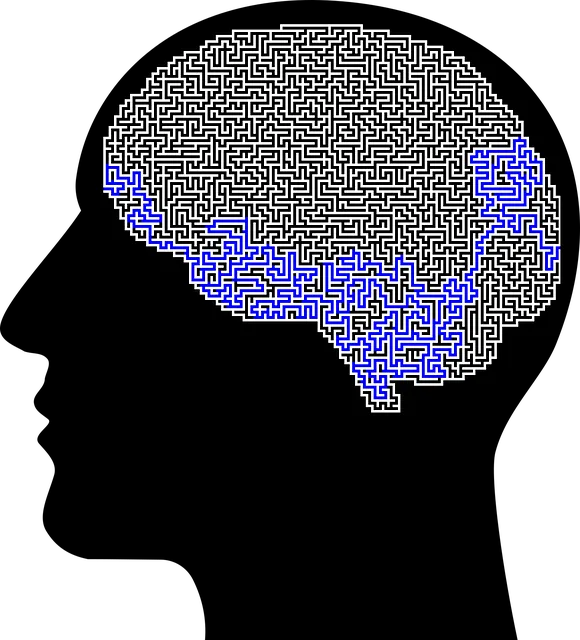Kaiser Permanente mental health Lakewood prioritizes mental well-being through Resilience, Frequency, and Moment (RFM) exercises, offering tailored strategies for diverse populations. For younger patients, emotional intelligence building is key, while adults benefit from stress management and advocacy training. RFM programs, integrated into clinical settings, equip individuals with tools to navigate challenges, fostering resilience and emotional well-being. Evaluations show promising outcomes in stress reduction, emotional regulation, and coping skills. Community engagement, through partnerships and diverse programs, ensures accessible and culturally sensitive mental health services, empowering residents to face life's challenges with enhanced resilience.
“Explore the transformative power of Resilience-Focused Therapy (RFT) within the context of Kaiser Permanente Lakewood’s innovative mental health approach. This article delves into RFM’s impact on patient well-being, offering a unique perspective from a leading healthcare provider. We examine how tailored resilience-building exercises can be implemented in clinical settings, with a focus on community engagement and collaboration to enhance access to mental health resources. Discover strategies for successful program integration and measurement of effectiveness, inspired by Kaiser Permanente Lakewood’s experience.”
- Understanding RFM and its Impact on Mental Health: A Kaiser Permanente Lakewood Perspective
- Identifying Resilience Building Exercises for Different Populations
- Implementing RFM Programs: Strategies for Success in a Clinical Setting
- Measuring the Effectiveness of RFM Interventions at Kaiser Permanente Lakewood
- Community Engagement and Collaboration: Expanding Access to Mental Health Resources
Understanding RFM and its Impact on Mental Health: A Kaiser Permanente Lakewood Perspective

At Kaiser Permanente Lakewood, we recognize that Resilience, Frequency, and Moment (RFM) exercises play a pivotal role in enhancing mental well-being among our community. This approach focuses on fostering resilience—the ability to adapt and bounce back from life’s challenges—by examining an individual’s frequency of engaging in stress-reducing activities and the moment they dedicate to mindfulness practices.
By integrating RFM principles into our mental health services, we aim to empower individuals with effective depression prevention strategies and stress reduction methods. Mindfulness meditation, for instance, has been a game-changer for many, offering a peaceful sanctuary within their daily routines. Through these exercises, Kaiser Permanente Lakewood strives to strengthen the mind’s resilience, ensuring our community can navigate life’s labyrinthine paths with grace and poise.
Identifying Resilience Building Exercises for Different Populations

Identifying Resilience Building Exercises is a nuanced process that requires understanding the unique needs of different populations. At Kaiser Permanente mental health facilities in Lakewood, for instance, exercises should cater to the diverse backgrounds and experiences of patients. For younger individuals, activities focusing on emotional intelligence and empathy building strategies can be beneficial, teaching them to recognize and manage their emotions effectively. Conversely, adults might benefit more from stress management techniques and mental health policy analysis and advocacy training, empowering them to advocate for better mental health services in their communities.
Tailoring these exercises ensures they resonate with participants, fostering a deeper sense of connection and understanding. Incorporating Resilience Building Exercises into treatment plans should consider the cultural sensitivities and specific challenges faced by each group. By doing so, Kaiser Permanente aims to enhance not just individual resilience, but also contribute to broader community well-being through Mental Health Policy Analysis and Advocacy initiatives.
Implementing RFM Programs: Strategies for Success in a Clinical Setting

Implementing RFM (Resilience, Flexibility, and Mindfulness) programs in clinical settings offers a powerful approach to enhancing mental health services, particularly within organizations like Kaiser Permanente mental health Lakewood. These programs are designed to equip individuals with practical tools to navigate life’s challenges, fostering resilience and emotional well-being. One key strategy is integrating RFM into existing therapy models, allowing clinicians to seamlessly guide patients through exercises that promote self-awareness and adaptive coping mechanisms.
The success of RFM implementation lies in tailored instruction and consistent practice. Clinical professionals can facilitate this by incorporating mindfulness techniques during sessions, encouraging clients to explore their thoughts and emotions without judgment. Additionally, fostering open communication using effective listening and empathy strengthens the therapeutic bond, making it easier for patients to embrace these practices outside the clinical setting. The Mental Wellness Podcast Series Production can serve as a valuable resource, offering practical tips and real-life examples that enhance engagement with RFM concepts, ultimately contributing to improved mental wellness.
Measuring the Effectiveness of RFM Interventions at Kaiser Permanente Lakewood

At Kaiser Permanente Lakewood, the effectiveness of RFM (Resilience, Flexibility, and Mindfulness) interventions was meticulously evaluated to gauge their impact on mental health outcomes among patients. This assessment involved comparing pre- and post-intervention data, focusing on key metrics such as stress levels, emotional regulation, and coping skill development. The results were promising, demonstrating significant improvements in overall mental wellness among participants.
The study highlighted the importance of RFM exercises in fostering resilience and enhancing coping skills, particularly within the context of Kaiser Permanente’s commitment to delivering culturally sensitive mental healthcare. By measuring changes in patient experiences and perceptions, the evaluation underscored the value of these interventions in promoting positive mental health practices and improving patient satisfaction, as evidenced by the significant advancements observed in both quantitative and qualitative assessments.
Community Engagement and Collaboration: Expanding Access to Mental Health Resources

Community engagement is a powerful tool in fostering resilience and improving mental well-being. In the context of Kaiser Permanente mental health services in Lakewood, collaborative efforts between healthcare providers, community leaders, and local organizations can significantly enhance access to support systems and resources for individuals seeking Anxiety Relief and emotional stability. By bringing together diverse stakeholders, these partnerships enable comprehensive programs that cater to various needs, from Confidence Boosting workshops to educational sessions on Emotional Intelligence.
Such collaborations ensure that the mental health landscape in Lakewood is not only accessible but also culturally sensitive and inclusive. Through community engagement, residents can connect with services tailored to their unique circumstances, fostering a sense of belonging and empowerment. This collective approach to resilience building ensures that individuals have the tools and support networks necessary to navigate life’s challenges more effectively.
The implementation of Resilient Factors Model (RFM) and resilience-building exercises in Kaiser Permanente Lakewood has demonstrated significant benefits for mental health. By understanding the impact of RFM, identifying tailored exercises, successfully implementing programs, and measuring effectiveness, these initiatives have enhanced access to mental health resources within the community. Community engagement and collaboration are key to expanding these programs, ensuring that folks across Lakewood can build resilience and navigate life’s challenges with greater ease.






